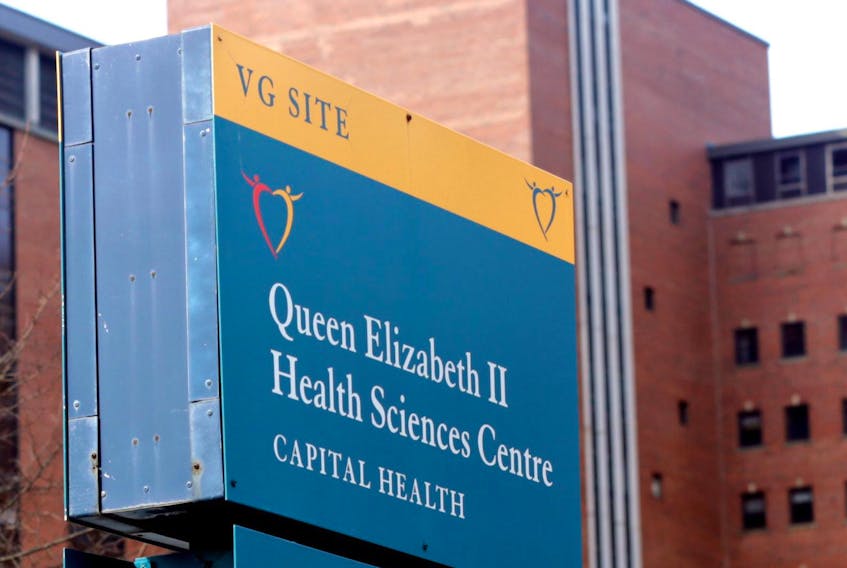The $2-billion QEII redevelopment plan is a ripe target for fraudsters and a fraud audit should be conducted on all government-approved contracts for the project immediately, says an expert in construction and fraud law.
“Any construction project of any size is very susceptible to fraud for any number of reasons internally and externally, and for there not to be proper internal controls and fraud protection for this project in this day and age is negligence or worse on the part of the government," said Ottawa-based lawyer David Debenham, who’s also president of the Association of Certified Forensic Investigators of Canada.
Debenham was responding to Nova Scotia Auditor General Michael Pickup’s report released Tuesday zeroing in on the Department of Transportation for failing to implement basic financial checks and balances over the project.
Pickup was pointed in his criticism.
“For a project the size of the QEII New Generation Project, we expected to see a project-specific fraud risk management program which included a fraud policy, code of ethics, fraud risk assessment, fraud awareness training, and processes to ensure ongoing monitoring of fraud risks,” auditor general Michael Pickup said in his report. “However, these have not been completed.”
Debenham said the auditor general was “dead right” in his expectation that the department would have a solid fraud management plan in place by now.
“Fraud should be at the top of the government’s list because it’s such an obvious source for not getting value for money, which is the whole object of government, to get maximum value for taxpayers money."
He said construction fraud remains a huge issue in the country and pointed to his own city as an example. The Ottawa Hospital has been embroiled in a longstanding court case involving allegations of contractors and project managers engaging in a pattern of fraudulent dealings for construction and maintenance service contracts.
“Private sector businesses spend a lot of time protecting themselves, and for the government to simply say we just trust everybody is inviting fraudsters to go to the place of least resistance,” said the lawyer.
“If I’m a taxpayer, I’m very concerned and if I’m one of the private partners I’m going to be all over the government asking why are you putting our project at risk?” - David Debenham
The government is already well into the bidding process, awarding several contracts valued at about $400 million, according to the department. About $150 million of this has been spent. Debenham said he would do a fraud audit of all those contracts if it were up to him.
“If I’m a taxpayer, I’m very concerned and if I’m one of the private partners I’m going to be all over the government asking why are you putting our project at risk?”
The department said the QEII New Generation Project team has been and is operating under the province’s fraud policy. Its internal audit group has “begun the process of fraud audits with an outside consultant.”
“Initial work will be complete in the Spring of 2020 and this work will remain ongoing to ensure it stays up-to-date as the project progresses," said the statement. The P3 procurement process includes measures in place to mitigate the risk of fraud, including a fairness monitor to ensure that all interactions between the project team and bidders are done fairly, said the department.
Pickup’s report shows that the department has lagged in adopting recommendations made by a consultant hired by the province almost two years ago to advise on implementing a proper fraud prevention system for the project.
Only seven of 18 recommendations have been completed, excluding seven deemed critical to the success of the project. They include establishing project controls, ensuring role/responsibility clarity, appointing experienced individuals to key project roles and developing a detailed project resource plan.
The 11 consultant recommendations that have yet to be completed are nearing completion, said the department. But it did not say when they would be finished.
Debenham said as it stands, the project is vulnerable to internal fraud. This could include a government employee accepting bribes or external fraud, where the lowest bidder for a project might use cheaper, inferior material. But the lawyer said fraud can take many forms.
“It’s a simple process to protect yourself from fraud," said Debenham. "It’s to ensure no one has independence when it comes to the flow of money and there’s oversight everywhere.”
Progressive Conservative leader Tim Houston said the lack of controls point to government "failing in its job to protect taxpayers."
"There’s a significant risk that this becomes a $3-billion project and this is the type of project that someone really needs to be watching," said Houston. "The fact that they’re not filling the position vacancies and making sure somebody is accountable, it just increases the risk tremendously."
NDP transportation critic Susan Leblanc called the AG's findings "deeply concerning."
“The Liberal government’s inability to ensure even their own consultant’s critical recommendations were implemented raises significant questions around the risk of fraud and how this $2-billion project is being managed."
RELATED









